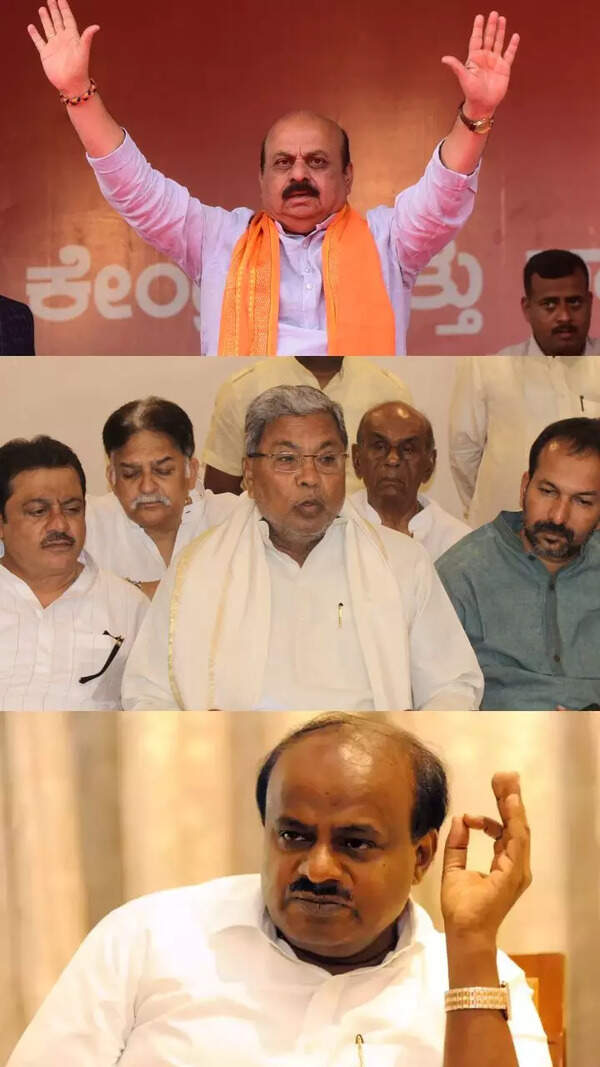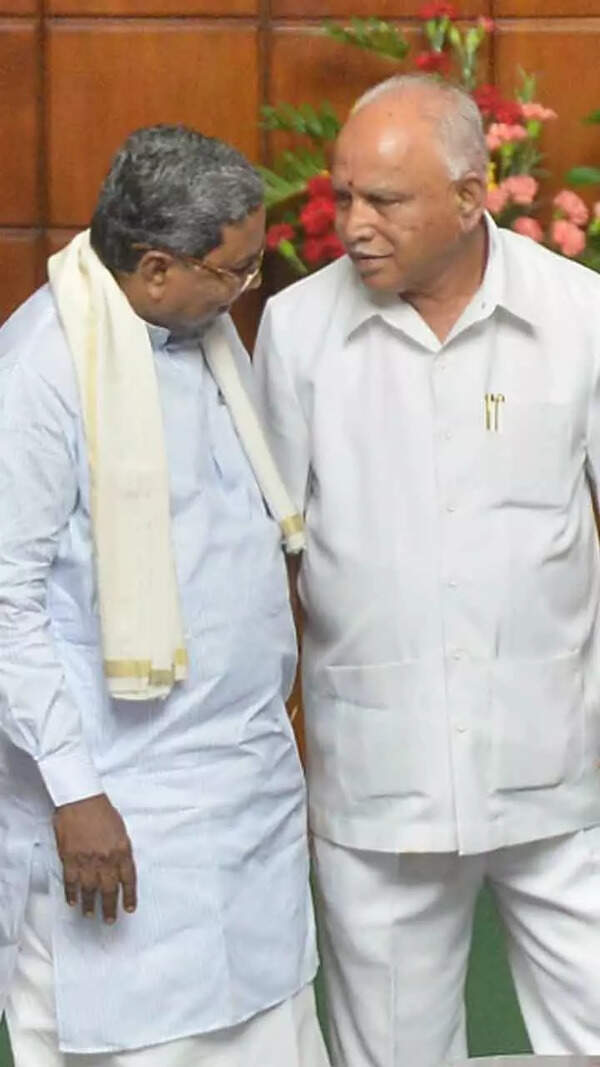- News
- City News
- delhi News
- Delhi HC refuses to grant bail to 'influential' Satyendar Jain
Trending Topics
Delhi HC refuses to grant bail to 'influential' Satyendar Jain

Jailed AAP minister Satyendar Jain. (File image)
NEW DELHI: Delhi High Court on Thursday rejected the bail plea of former AAP minister Satyendar Jain in a money laundering case of 2017, noting that he is an influential person who is the "conceptualiser, visualiser and executor" of the alleged operation if witness claims are to be believed.
The court also cited his "conduct during custody" to conclude that he has potential to tamper with evidence and underlined Jain's failure to meet the twin conditions under Section 45 of Prevention of Money Laundering Act (PMLA) to be eligible for bail. The conditions are the court finding that the accused is not guilty of the offence of money laundering and that he is not likely to commit any offence while on bail.
"Outrightly" rejecting Jain's submission that he was not found in physical possession of any property, the court said that for the offence of money laundering, physical possession of the proceeds of crime is not necessary.
"The petitioner Satyendar Kumar Jain is an influential person and has a potential to tamper with the evidence as indicated by his conduct during the custody," Justice Dinesh Kumar Sharma noted, while also rejecting the bail plea of co-accused Vaibhav Jain and Ankush Jain. The three accused had challenged the trial court's November 17 order dismissing bail pleas. Jain, who was arrested on May 30 last year by Enforcement Directorate, is accused of having laundered money through four companies allegedly linked to him.
Generally in cases of criminal conspiracy, the high court underlined, it is "near impossible" to find direct evidence, in particular where there is transaction of cash. It, however, pointed to the shareholding pattern of the companies, saying it shows "Satyendar Jain or his family is controlling these companies directly or indirectly" and, since the share pattern is quite intricate, it needs to be examined thoroughly.
Taking note of the witnesses' testimonies to ED, it pointed out that these reveal that the AAP leader was "the conceptualiser, visualiser and executor of the entire operation and is being aided and abetted by Vaibhav Jain and Ankush Jain". The investments were also being made by people at the former minister's instance, HC observed, adding that in such cases, it is not essential if such people have personally met the accused.
The court also noted that CBI had filed a disproportionate assets case against him and others where cognisance had already been taken. "It is also not disputed that during this period, certain entries have come into the company against the payment of cash through Kolkata-based entry operators... that during the check period, certain disproportionate assets were amassed and those were round-tripped into the company through entry operators. There is a long association among the petitioners evidencing the trend of getting entries through the same operators."
The court said the entire amount of over Rs 4 crore had rightly been attributed to the petitioners and the contradictions in statements under Section 50 of PMLA couldn't be examined at this stage and was a matter of trial.
"The intention of the legislature in enacting PMLA is that money laundering poses a serious threat not only to the financial systems of countries but also to their integrity and sovereignty and, therefore, the legislature thought it fit to provide a comprehensive legislation for this purpose," Justice Sharma emphasised.
The court also cited his "conduct during custody" to conclude that he has potential to tamper with evidence and underlined Jain's failure to meet the twin conditions under Section 45 of Prevention of Money Laundering Act (PMLA) to be eligible for bail. The conditions are the court finding that the accused is not guilty of the offence of money laundering and that he is not likely to commit any offence while on bail.
"Outrightly" rejecting Jain's submission that he was not found in physical possession of any property, the court said that for the offence of money laundering, physical possession of the proceeds of crime is not necessary.
"The petitioner Satyendar Kumar Jain is an influential person and has a potential to tamper with the evidence as indicated by his conduct during the custody," Justice Dinesh Kumar Sharma noted, while also rejecting the bail plea of co-accused Vaibhav Jain and Ankush Jain. The three accused had challenged the trial court's November 17 order dismissing bail pleas. Jain, who was arrested on May 30 last year by Enforcement Directorate, is accused of having laundered money through four companies allegedly linked to him.
Generally in cases of criminal conspiracy, the high court underlined, it is "near impossible" to find direct evidence, in particular where there is transaction of cash. It, however, pointed to the shareholding pattern of the companies, saying it shows "Satyendar Jain or his family is controlling these companies directly or indirectly" and, since the share pattern is quite intricate, it needs to be examined thoroughly.
Taking note of the witnesses' testimonies to ED, it pointed out that these reveal that the AAP leader was "the conceptualiser, visualiser and executor of the entire operation and is being aided and abetted by Vaibhav Jain and Ankush Jain". The investments were also being made by people at the former minister's instance, HC observed, adding that in such cases, it is not essential if such people have personally met the accused.
The court also noted that CBI had filed a disproportionate assets case against him and others where cognisance had already been taken. "It is also not disputed that during this period, certain entries have come into the company against the payment of cash through Kolkata-based entry operators... that during the check period, certain disproportionate assets were amassed and those were round-tripped into the company through entry operators. There is a long association among the petitioners evidencing the trend of getting entries through the same operators."
The court said the entire amount of over Rs 4 crore had rightly been attributed to the petitioners and the contradictions in statements under Section 50 of PMLA couldn't be examined at this stage and was a matter of trial.
"The intention of the legislature in enacting PMLA is that money laundering poses a serious threat not only to the financial systems of countries but also to their integrity and sovereignty and, therefore, the legislature thought it fit to provide a comprehensive legislation for this purpose," Justice Sharma emphasised.
Start a Conversation
FOLLOW US ON SOCIAL MEDIA
FacebookTwitterInstagramKOO APPYOUTUBE










